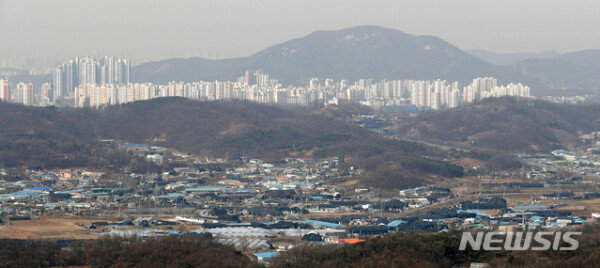France 24
The 80th anniversary of the Koufra oath, the first victory of Free France
Eighty years ago, on March 2, 1941, Colonel Leclerc took an oath that would go down in history. After having captured the Italian fort of Koufra in the middle of the Libyan desert, after an incredible bluff, the future marshal promised to continue the fight until the tricolor flag flies again over Paris and Strasbourg. He kept his word. “The isolation of Koufra is extraordinary: it is a situation which has no equal in the whole Sahara, Koufra is more or less exactly at the mathematical heart of the Libyan desert. In whatever direction you go, it you have to cross 400 to 500 kilometers of nothingness to get to an inhabited region. ” It is in these terms that the French geographer and explorer Émile Felix Gauthier described, in 1928 in his work “Sahara”, the oasis of Koufra, in Libya. Lost in the middle of nowhere, it was nevertheless the scene of one of the most beautiful pages in the history of Free France.At the end of 1940, after the reunification of Gabon with Free France, a certain Colonel Leclerc is appointed military commander in Chad. The man, Philippe de Hauteclocque of his real name, a Saint-Cyrien from the aristocracy, has France pegged to the body. He reached London in July 1940 and was sent to Africa, and from Chad he launched raids towards the Italian positions. He then had the idea of attacking Koufra, a group of palm groves dominated by a fort. “There is a double perspective. This territory had been the last conquered by the Italians about ten years earlier and its capture made it possible to remove a threat. This place also made it possible to have radio broadcasts of very good quality and to launch raids towards the rear of the German-Italian troops “, explains Sylvain Cornil-Frerrot, responsible for historical research at the Foundation of Free France.” Completely destitute guys “But on paper, the idea seems crazy. Koufra is located 1,500 kilometers north of Fort-Lamy (now N’Djamena) in Chad. Colonel Leclerc does not care. In a few days, he succeeded in assembling the means of transport and the necessary manpower (400 men, including about 300 African soldiers and a hundred Europeans). “The troops of Chad were really not much. They were completely destitute guys with very little material”, describes Jean-Christophe Notin, author of a biography on Leclerc (Perrin editions). “France was then on the ground. It was therefore necessary to show that there was still a warrior soul and to make a big blow. That’s why he decided to take this fort.” Leclerc’s men settled in first in Faya-Largeau, in northern Chad, before launching the start of their raid which ran from January 23 to 28, 1941. A reconnaissance group reached the oasis on February 7. The first battles began, but it was not until the 16th that the French troops rout the Italians. The fort is then besieged. Colonel Leclerc then had only one 75 mm gun. According to legend, his troops constantly move this piece of artillery in order to make the enemy believe that a larger armed force is attacking them. “But an old man told me that he was spinning it especially so as not to be spotted,” says Jean-Christophe Notin, who at the end of the 1990s collected the testimony of many veterans of the Free French Forces. “An incredible one. blow of bluff “After ten days, the Italians ask to parley, which Leclerc refuses. On March 1, discussions drag on with emissaries. The French colonel ends up getting into the car with them and enters the fort to demand their surrender. “It’s an incredible bluff. He walks in on his own with Captain Guillebon. He says to them: ‘Now it’s over!’ Leclerc, that was it. It was this desire. We should not tell him that it was impossible, “enthuses Jean-Christophe Notin. The bet is successful. The enemy gives up all his armaments, his material, and signs unconditionally. The Free French Forces have just won their first victory. “On February 22, 1941, they were also victorious at the battle of Kub Kub in Eritrea, but it was alongside the English,” says the historian. “In Koufra, it is the first 100% French success.” The next morning, the French flag is hoisted on the mast of the fort. It was then that Colonel Leclerc would have pronounced these words which have become famous and forming the oath of Koufra: “We will not stop until the French flag also flies over Metz and Strasbourg”. The truth is more complex, according to Sylvain Cornil-Frerrot: “We have several versions and they are never the same. Did he take an oath or only give a speech in which he said his perspective? It is uncertain, but overall there was the idea of the French flag and the liberation of Strasbourg. “On March 2, 1941, the legend was born. If the news goes unnoticed in France, the propaganda of Free France and that of its allies quickly seizes this victory. Militarily limited, it is symbolically very strong. The BBC is the first to echo this “first offensive act carried out against the enemy by French forces leaving from French territories, under the orders of a solely French command”. A few days later, General de Gaulle also warmly congratulates Colonel Leclerc. “You have just proven to the enemy that he has not finished with the French army. The glorious troops of Chad and their leader are on the road to victory.” The young officer, then aged 38, was immediately promoted to brigadier general. “His first kepi had been tinkered with. The two stars came from an Italian uniform. There was a lack of everything, but a real energy”, underlines with amusement Jean-Christophe Notin. Promise kept General Leclerc will keep his promise, when the November 23, 1944, Strasbourg finally liberated, saw floating at the top of the spire of its cathedral, the French flag. Its troops, composed mainly of black soldiers in Koufra in 1941, will however have changed in appearance, as Jean-Christophe Notin recalls: “The Africans are no longer there when they enter Strasbourg because the Americans did not want them in the armored divisions, but there were still European soldiers who had known Koufra “. Three years later, the liberator of Paris and Strasbourg was killed in a plane crash during an inspection tour in North Africa. For a long time, his memory will remain anchored in the minds of his men: “Leclerc had no doubts about anything and always found solutions. Those who knew him always told me that when he came into contact with him, they were galvanized. He also did it. attention to them and to human lives. It was daring, but not madness “, summarizes Jean-Christophe Notin.
–


